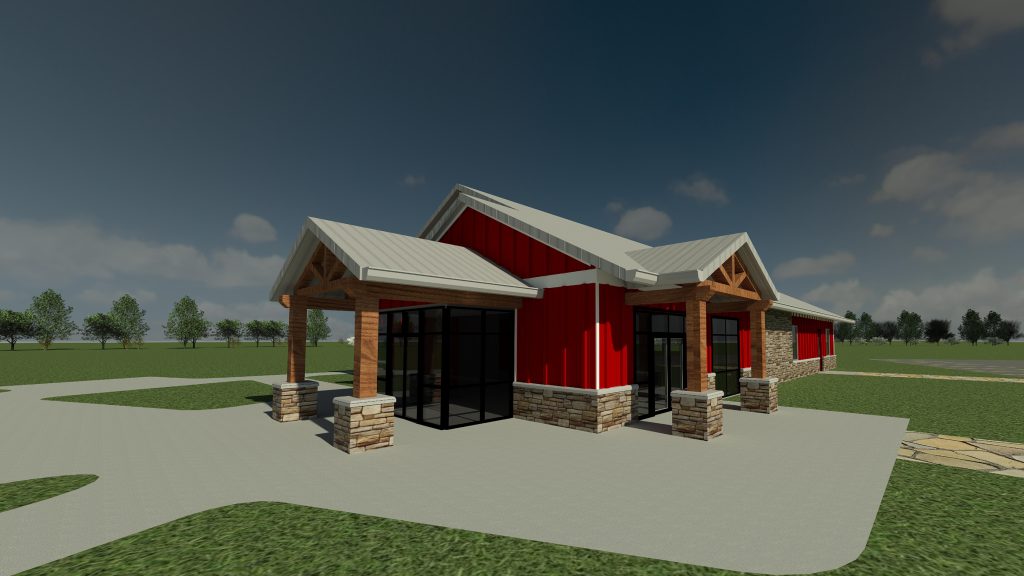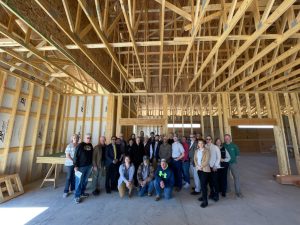
A new building at the University of Missouri’s Horticulture and Agroforestry Research Farm (HARF) in New Franklin will upgrade the ability of the farm to host educational and outreach events, and support the local community, including producers and landowners.
HARF is part of the College of Agriculture, Food and Natural Resources’ (CAFNR) Central Missouri Research, Extension and Education Center (CM-REEC), and, up until now, has not had indoor space to host events, educational opportunities, and outreach demonstrations.
“We are thrilled to be coming to completion on this important building project,” said Dusty Walter, director of the CM-REEC. “We have top-level research going on at this property, and have not had a place to hold events to showcase the research and opportunities it creates for Missouri.”
The building will include offices for HARF faculty and staff, as well as kitchen and meeting space for events (with a capacity of 85). The Learning Center will provide indoor space for teaching students, whether from Mizzou or local schools, as well as for workshops and demonstrations about the property’s research.
“This project is a culmination of efforts over time,” said Christopher Daubert, vice chancellor and dean of CAFNR. “We are excited to finally be able to be a hub for local events, educational opportunities, and more.”
HARF is the primary research site for the University of Missouri Center for Agroforestry (UMCA), a CAFNR Program of Distinction. The farm includes numerous experimental fruit (peach, pawpaw, elderberry) and nut orchards (chestnut, black walnut, northern pecan, ‘Bucks Unlimited’TM oak), in addition to agroforestry research and demonstrations, such as forest farming, riparian buffers, silvopasture, alley cropping, and windbreaks. Other projects include forage shade trials, flood-tolerance trials, biofuel trials, and pinestraw production trials.

“The Center for Agroforestry continues to grow and develop,” said Ben Knapp, interim director. “We have so many opportunities to engage educationally through workshops and field tours. For example, our annual Agroforestry Training Academy brings practitioners to HARF for hands-on training, with a focus on veterans and small farmers.”
“I’m proud of the work being done at HARF, and excited to be able to showcase it even more than we have been able to in the past,” said Shibu Jose, CAFNR’s associate dean for research and director of the Missouri Agricultural Experiment Station, of which HARF is a part. “We look forward to being a resource for the local community and beyond.”
The topping-off ceremony included a ceremonial building signing by attendees.
The $1.85 million funding for HARF’s 4,900 sq. ft. Learning Center was provided by units within the College of Agriculture, Food and Natural Resources and a USDA Rural Economic Development Grant. The building is scheduled for completion summer of 2024.